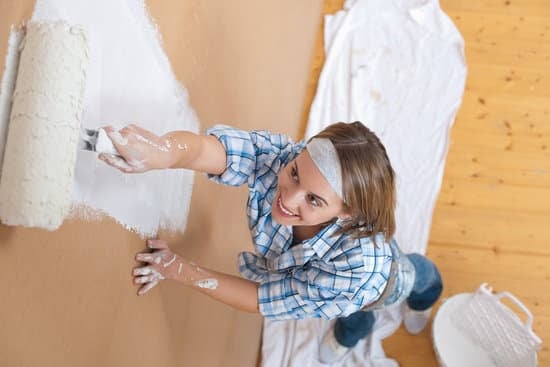How do home improvements affect equity? For homeowners, understanding the relationship between home improvements and equity is crucial. Equity in the context of home ownership refers to the value of the property minus the amount still owed on the mortgage. This article will delve into the significance of comprehending how renovations, additions, upgrades, and other improvements impact equity.
Equity plays a significant role in real estate as it represents a homeowner’s financial interest in their property. Factors such as market trends, location, and types of improvements can all influence a home’s equity. By understanding these dynamics, homeowners can make informed decisions about improving their properties to increase their equity.
What many homeowners may not realize is that while some home improvements can increase a property’s value and subsequent equity, others may not yield such positive results. It is important to assess each improvement carefully to determine its potential impact on equity. Throughout this article, we will dissect this concept further and provide insights into how different types of improvements can affect a property’s equity.
Understanding Equity
Equity in the context of home ownership refers to the value of the homeowner’s stake in the property. It is essentially the difference between the market value of the property and the amount still owed on any mortgages or other liens. Understanding how home improvements impact equity is crucial for homeowners, as it can significantly affect their financial standing and investment in their property.
When it comes to real estate, equity is built over time through various factors. These include paying down the mortgage, appreciation in property value, and making home improvements. The more a property appreciates and the more mortgage payments are made, the greater the equity. This illustrates how important it is for homeowners to consider how their investments into their homes can impact this crucial aspect of their financial well-being.
By improving different aspects of a home, homeowners have the potential to increase its overall market value and subsequently build equity. However, it’s essential for homeowners to understand that not all home improvements will necessarily lead to an increase in equity.
Factors such as the type of improvement, quality of workmanship, and market trends can all influence whether a renovation or upgrade will positively impact equity. Thus, understanding these nuances is key to making informed decisions when investing in home improvements that can ultimately affect equity.
Types of Home Improvements
When it comes to improving your home, there are various types of improvements that can be made to enhance its value and subsequently affect the equity. Here are some common types of home improvements:
- Renovations: Renovating areas such as the kitchen, bathrooms, or basement can significantly increase the value of your home and consequently, the equity. Upgrading outdated features and enhancing the overall aesthetic appeal can make a big impact.
- Additions: Adding square footage to your home, whether it’s an extra bedroom, bathroom, or even a sunroom, can have a positive effect on equity. Increasing the livable space in your home is typically well-received by potential buyers and can boost its value.
- Upgrades: Making improvements to essential systems in the home such as HVAC, plumbing, or electrical can also impact equity. Energy-efficient upgrades like installing new windows or adding solar panels can contribute to increasing equity.
Each type of improvement has the potential to affect equity in different ways. It’s important for homeowners to carefully consider which improvements will provide the most significant return on investment in terms of increasing their home’s equity.
Cost vs Value
When homeowners decide to make improvements to their property, one of the most important considerations is the cost versus the value that those improvements will add to the home. It’s crucial to understand that not all home improvements will necessarily increase the equity or resale value of a home. In fact, some improvements may end up costing more than they add in value.
Understanding the Distinction
The cost of a home improvement refers to the actual expenses incurred in making the improvement, such as materials, labor, and any associated fees. On the other hand, the value of an improvement pertains to how much it contributes to increasing the overall equity and market worth of the property. Understanding this distinction is essential for homeowners looking to make meaningful changes to their homes while also enhancing their equity.
Examples of High ROI Improvements
There are several types of home improvements that typically yield a high return on investment in terms of equity. For instance, kitchen remodels and bathroom renovations are known for significantly increasing a home’s resale value.
Similarly, adding a deck or patio, installing energy-efficient windows and doors, or enhancing curb appeal through landscaping can also have a positive impact on equity. Homeowners should carefully consider these types of improvements when planning their projects to ensure that they are maximizing their potential for increasing home equity.
Market Trends
When it comes to home improvements and their impact on equity, it’s essential for homeowners to consider market trends. Market trends can greatly influence how much value improvements add to a property. Factors such as location, neighborhood desirability, and buyer preferences all play a role in determining the equity that home improvements can bring.
An important aspect of market trends to consider is the overall real estate market in your area. Are home prices increasing or decreasing? Is there high demand for homes in your neighborhood?
These are all factors that can affect how much equity certain home improvements can bring. For example, adding a swimming pool may significantly increase equity in an area where pools are highly desirable, but may not have the same impact in a colder climate where pools are less common.
In addition to general real estate market trends, homeowners should also look into specific neighborhood or local trends. Are there specific features or amenities that are popular in your area? Understanding what buyers are looking for can help homeowners make informed decisions about which improvements will bring the most value to their property.
The key takeaway here is that paying attention to market trends can help homeowners make strategic decisions about home improvements. By aligning improvement projects with current and anticipated future demands of potential buyers, homeowners can maximize their equity and ensure that their investments pay off when it comes time to sell the property.
| Market Trends | Impact on Equity |
|---|---|
| Real estate market conditions | Determines whether certain improvements will yield high or low returns |
| Neighborhood preferences | Influences the desirability and value of specific home features and amenities |
| Buyer demandHelps homeowners understand what potential buyers are looking for in a property |
Financing Home Improvements
When it comes to financing home improvements, there are several options available for homeowners. Understanding these options and their potential impact on equity is crucial in making informed decisions about how to fund renovation projects. Here are some common financing options for home improvements:
- Personal savings: Using personal savings to finance home improvements can have a positive impact on equity, as it avoids accruing additional debt and interest payments.
- Home equity loans: These loans allow homeowners to borrow against the equity in their property. While they can provide a substantial amount of funding for renovations, it’s important to carefully consider the impact of added debt on equity.
- Home equity lines of credit (HELOC): Similar to home equity loans, HELOCs also allow homeowners to borrow against the value of their homes. However, they offer more flexibility in accessing funds over time and can affect equity differently depending on usage.
Before choosing a financing option, it’s important for homeowners to weigh the potential impact on their home equity and overall financial situation. Each option comes with its own risks and benefits, so careful consideration is essential.
Additionally, when taking out a loan or using a line of credit for renovations, it’s crucial to have a clear understanding of how the improvements will add value to the property. This ensures that the use of funds contributes positively to the overall equity in the home.
Ultimately, financing home improvements requires thoughtful evaluation of available options and consideration of their potential impact on home equity. By making well-informed decisions about funding renovation projects, homeowners can work towards maximizing the overall value of their properties while achieving their desired upgrades.
Tips for Maximizing Equity
Strategic Renovations
When it comes to maximizing equity through home improvements, strategic renovations are key. This means focusing on improvements that not only align with your personal preferences but also have the potential to increase the value of your home. Some examples of strategic renovations include kitchen and bathroom remodels, adding a deck or patio, upgrading flooring, and enhancing curb appeal through landscaping. These types of improvements often provide a high return on investment in terms of equity.
Energy-Efficient Upgrades
Another effective way to maximize equity is by making energy-efficient upgrades to your home. This can include installing new windows, upgrading insulation, replacing old appliances with energy-efficient models, and incorporating smart home technology. Not only do these upgrades appeal to potential buyers who are increasingly conscious of environmental sustainability, but they can also result in long-term cost savings on utility bills-factors that contribute to increased home equity.
Professional Consultation
Seeking advice from real estate professionals can be instrumental when it comes to making informed decisions about home improvements. Consulting with appraisers, real estate agents, or experienced contractors can help you identify which improvements are most likely to positively impact your home’s equity based on the current market trends and buyer preferences in your area.
Additionally, professionals can provide guidance on cost-effective improvements that yield the highest returns and prevent over-improving your home for the neighborhood, which could potentially decrease its resale value.
Consultation With Real Estate Professionals
When it comes to making significant home improvements, seeking guidance from real estate professionals is crucial in ensuring that the decisions made will positively impact equity. Real estate agents, appraisers, and other experts have invaluable knowledge about the local market and can provide insights into which improvements are most likely to increase the value of your home.
Real estate professionals can offer advice on which specific renovations or upgrades are in high demand in your area, as well as those that may not yield a substantial return on investment. They can also provide information on current market trends and buyer preferences, helping you make informed choices about your home improvements.
Working with a real estate professional can also help homeowners avoid over-improving their homes for the neighborhood, which occurs when the cost of improvements exceeds the potential increase in property value. By understanding the specific needs and expectations of potential buyers in your area, you can tailor your home improvements to maximize equity without overspending on unnecessary upgrades.
| Benefits of Consultation | Explanation |
|---|---|
| Market Insights | Receiving valuable information on local market trends and buyer preferences. |
| Avoiding Over-Improvement | Guidance on avoiding unnecessary expenditures that may not add significant value to the property. |
| Maximizing Equity | Tailoring improvements to meet the needs and expectations of potential buyers while increasing property value. |
Conclusion
In conclusion, it is clear that home improvements have a significant impact on the equity of a property. Understanding the concept of equity in real estate and the factors that contribute to it is crucial for homeowners who are considering making changes to their homes. The type of home improvement, the cost versus the actual value, market trends, and financing options all play a role in determining how renovations or upgrades will affect equity.
One key takeaway is the importance of thoroughly researching the local real estate market before embarking on any major home improvements. Market trends and location can greatly influence the impact of home improvements on equity, so being well-informed about these factors is essential. Additionally, carefully considering financing options and seeking professional guidance from real estate experts can help homeowners make informed decisions that will ultimately maximize their property’s equity.
As homeowners plan for future improvements, it is important for them to keep in mind the potential implications on equity. Striking a balance between personal preferences and renovations that have the greatest potential to increase equity is key. By taking these considerations into account, homeowners can ensure that their investments in home improvements yield not only aesthetic and functional benefits but also contribute to long-term financial value.
Frequently Asked Questions
Do Home Improvements Increase Equity?
Home improvements can increase equity in a home, especially if they add value to the property. Renovations such as kitchen or bathroom upgrades, adding square footage, or improving energy efficiency can all contribute to increasing a home’s equity.
However, it’s important to consider the specific market and neighborhood when deciding which improvements will have the most impact on equity.
What Factors Affect Home Equity?
Several factors can affect home equity, including the overall real estate market, the state of the local economy, and the condition of the property itself. Additionally, any outstanding mortgage balance will directly influence a home’s equity. Changes in interest rates and property taxes can also impact home equity over time.
What Increases Equity in a Home?
Equity in a home increases when the property appreciates in value over time. This is influenced by various factors including inflation, supply and demand in the housing market, location desirability, and economic development in the area.
Paying down the mortgage principal through regular payments also increases a homeowner’s equity in their property. Additionally, making strategic home improvements and maintaining the house properly can contribute to increased equity by enhancing its market value.

I’m thrilled to have you here as a part of the Remodeling Top community. This is where my journey as an architect and remodeling enthusiast intersects with your passion for transforming houses into dream homes.





